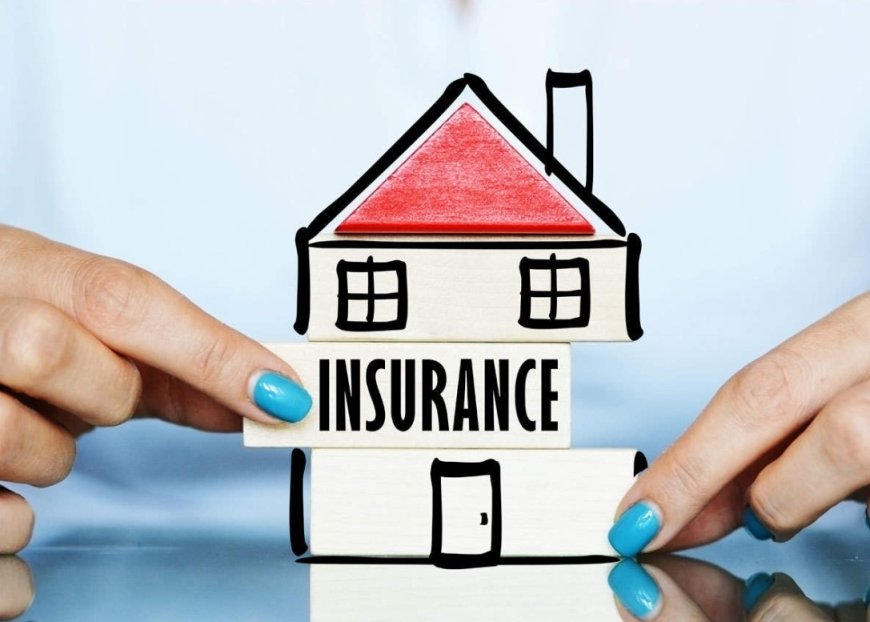Comprehensive Insurance for Manufactured Homes in Florida: What You Need to Know
Get essential tips and coverage options for insurance for manufactured homes in Florida. Protect your investment with the right policy tailored to your needs.

Owning a manufactured home in Florida is a unique experience that blends comfort with a touch of coastal charm. However, ensuring your home is protected from the unexpected is crucial. That's where the importance of insurance comes into play. For those navigating this landscape, understanding the ins and outs of insurance for manufactured homes in Florida can make all the difference. Let’s discuss why securing the right coverage is essential for safeguarding your slice of paradise.
Understanding Insurance for Manufactured Homes in Florida
What is Manufactured Home Insurance?
Manufactured home insurance is designed specifically to cover mobile or manufactured homes. This type of insurance typically includes protection against multiple risks such as fire, theft, vandalism, and certain natural disasters. It is similar to standard homeowners insurance but tailored to the unique needs of manufactured homes.
Why is it Important in Florida?
Florida is known for its beautiful beaches and sunny weather, but it is also prone to hurricanes, tropical storms, and flooding. These environmental factors pose significant risks to manufactured homes. Therefore, specialized insurance policies are necessary to provide comprehensive protection. Failing to obtain adequate coverage can result in severe financial losses in the event of damage or destruction.
Coverage Options for Manufactured Homes in Florida
When shopping for insurance for manufactured homes, it’s essential to understand the various coverage options available. These can typically be broken down into several categories:
Dwelling Coverage
Dwelling coverage is the primary component of a manufactured home insurance policy. It compensates for damage to the structure of your home caused by perils such as fire, wind, and hail. In Florida, consider adding additional coverage for hurricane damage, which may not be included in basic policies.
Personal Property Coverage
This part of the policy covers the belongings inside your home. Whether it's furniture, electronics, or clothing, personal property coverage reimburses you for items that are damaged, stolen, or destroyed. Given Florida's risk factors, it's advisable to inventory your possessions and ensure you have adequate coverage limits.
Liability Coverage
Liability coverage protects you in case someone gets injured on your property and decides to sue you. It covers legal fees, medical bills, and any settlements or judgments against you. This is particularly important for Florida homeowners who may have frequent visitors or rent out their property.
Additional Living Expenses (ALE)
If your manufactured home becomes uninhabitable due to a covered peril, ALE coverage will reimburse you for temporary living costs. This can include hotel stays, restaurant meals, and other expenses incurred while your home is being repaired or rebuilt.
Specialized Coverage for Florida
Flood Insurance
Standard insurance plans for manufactured homes in Florida do not typically cover flood damage. Florida's geography makes this type of coverage essential. Consider purchasing a separate flood insurance policy through the National Flood Insurance Program (NFIP) or a private insurer.
Windstorm Insurance
Due to the high risk of hurricanes, many insurers in Florida offer specific windstorm insurance policies. These provide coverage for damage caused by wind-related disasters, including hurricanes and tropical storms. Make sure to check if your primary policy includes windstorm coverage or if you need to purchase an additional rider.
Sinkhole Insurance
Florida has a higher incidence of sinkholes than any other state. Standard manufactured home insurance policies may not include sinkhole coverage, requiring a separate policy or endorsement. Given the potential for devastating damage, this is an important consideration for Florida homeowners.
Tips for Choosing the Right Insurance Policy
Assess Your Coverage Needs
Begin by thoroughly assessing your coverage needs. Consider the value of your home, the cost to replace your personal property, and potential liability risks. Evaluating these factors will help you determine the appropriate coverage limits.
Get Multiple Quotes
Shopping around for insurance can save you money and help you find the best policy for your needs. Obtain quotes from multiple insurers to compare prices, coverage options, and deductibles. This will enable you to make an informed decision.
Check the Insurer's Reputation
Research the reputation and financial stability of potential insurers. Look for customer reviews and ratings to ensure that the company has a history of reliable claims processing and customer service. Financial stability is also crucial; you want to choose an insurer that has the resources to pay out claims.
Florida Rental Property Insurance
Why You Need Rental Property Insurance
If you own a rental property in Florida, specialized insurance is essential. Florida rental property insurance, also known as landlord insurance, provides coverage for the different risks associated with renting out your property.
Types of Coverage
-
Property Damage: This covers the physical structure of the rental property and may include additional structures like garages or fences. It typically protects against fire, wind, hail, and other common perils.
-
Liability Coverage: This protects you if a tenant or visitor gets injured on your property and decides to sue.
-
Loss of Rental Income: If your rental property becomes uninhabitable due to a covered peril, this insurance can compensate you for lost rental income during the repair period.
Additional Tips for Landlords
It's crucial to ensure that your tenants also have renters insurance to protect their personal belongings. Additionally, regular maintenance and inspections can help prevent accidents and reduce the likelihood of claims.
Conclusion
Insurance for manufactured homes in Florida is a necessity due to the state's unique environmental risks. Understanding the different types of coverage, assessing your needs, and choosing the right policy can provide peace of mind and financial protection. Similarly, if you own a rental property, Florida rental property insurance offers essential coverage to safeguard your investment. Taking proactive steps to secure the appropriate insurance will help protect your property and your financial future.

 gpjackson
gpjackson 










